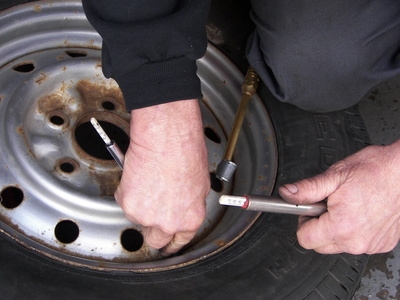
Rear hub bearings, also called wheel bearings or axle bearings, are greased bearings inside a car or truck's rear axle that allow the wheels to turn freely and smoothly. They are similar to front hub bearings, but rear hub bearings are especially important on cars with rear-wheel drive. Several symptoms can indicate bearing failure.
One of the most common early signs of a faulty rear hub bearing is excessive noise while driving. This may occur only when the vehicle reaches a certain speed, or there may be a constant, low humming at different speeds. Some failed bearings will make noise only when the driver executes a sharp turn.
This noise can be similar to the sound of tires with uneven tread wear. Before seeking a professional opinion or disassembling the hub bearing, be sure to check your tires for any signs of uneven wear or rotate the tires to see if the noise persists in the same location.
Congealed grease on the rear axle near the point where the hub bearing is mounted may indicate leakage from the bearing due to a ruptured seal. The grease will quickly pick up dust and debris from the road.
Another symptom is a wheel that is loose in its mounted position. This can be difficult to diagnose with the car on level ground, but on a lift or with the wheel in question raised with a jack, the wheel may wiggle even though its lug nuts are tight. This may indicate a loose hub bearing, which can occur after a leak when the interior of the bearing becomes worn or when water and debris enter the bearing housing and cause corrosion.